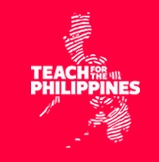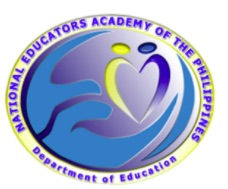Previous and ongoing Knowledge Immersion Projects
| Site: | ADB eLearn |
| Course: | Knowledge Immersion Program Toolkit |
| Book: | Previous and ongoing Knowledge Immersion Projects |
| Printed by: | Guest user |
| Date: | Wednesday, December 17, 2025, 5:44 PM |
Description
Review details of KIP initiatives here.
1. Teach for the Philippines (TFP)--2021 to 2022 (completed)
Teach for the Philippines (2021 to 2022)

About the Knowledge Host:
Teach for the Philippines (TFP) was founded in 2012 with the goal of achieving education equity in the country, a future where all Filipino children have access to an inclusive, excellent and relevant education. TFP selects, trains and deploys young Filipino leaders to teach for two (2) years in public school under its Fellowship program and provides opportunities for them to continue working in education, government and policy and social reform as Alumni. In 2018, TFP extended its Fellowship program to existing itemized public school teachers through the Public School Teacher Pathway (PSTP) whom the organization envisions will grow into key leadership positions within the Philippine Department of Education. Currently, TFP has a team of 33 full-time staff and ~100 active Teacher Fellows/PSTP Teacher Leaders placed across 36 schools in 22 cities and municipalities nationwide. The organization also supports 164 program alumni, ~80% of whom remain engaged in Education work.
As of current, TFP is wrapping-up its Central Data Bank (CDB) project and is transitioning to embed it into operations. The CDB is aimed at improving how common data points like participants’ and beneficiaries’ experiences that exist within the program are connected and shared by different function teams. The technology runs in the Google Sheet environment, coded using Google App Script and is transmitted to Tableau as our data dashboard. It has three main components:
(1) the Input Form; and
(2) Central Database; and
(3) Dashboard.
The same thinking and design apply to the Student Data Bank project that we are currently developing. The ultimate goal for these products is for us to measure growthacross time and/or identify associations and correlations across the disparate data sets.
Knowledge Expert 1:Database Developer
Objective of the assignment:
Build an end-to-end data management product that that will allow TFP function teams to connect and consolidate shared data across the participants and beneficiaries experience in the program. Mainly, this involves designing and implementing a new product for extracting “unique” function team data (e.g. Admissions data, Training and coaching data, Alumni data, Student data) and connecting it across all shared data points that exist within the program so we can measure growth across time and/or identify associations and correlations across the currently disparate data sets.
This product should be online, secure and have an intuitive user interface that will allow the end user (typically a function team head at TFP) to 1) upload his/her operational data into the system through automated integration of his/her team’s operational trackers (currently living in Google Sheets), 2) filter his end user’s view of the data based on shared data categories, 3) see connected data from other function teams’ trackers, based on his end user’s filter view and 4) generate reports based on these data connections/aggregation.
Knowledge Expert 2: Systems and Data Analyst
Objective of the assignment:
Specific to this terms of reference and aligned with Teach for Philippines’ (TFP) strategy, the primary objective of the proposed assignment is to provide specialized TA to
create and strengthen knowledge management and technical documentation for TFP’s data systems and operations. This involves conducting a review and technical
documentation of existing processes and technologies that the organization employs, including the (re)design of specific technology products and process improvements
on data management implemented by the organization. This is to ensure the successful creation and transfer of knowledge including but not limited to writing
comprehensive implementation guides, user manuals and assisting in the conduct of onboarding sessions to relevant stakeholders.
2. Pakistan's Ministry of Climate Change--2021-2022 (completed)

About the Knowledge Host
Government agency tasked to mainstream climate change in the economically and socially vulnerable sectors of the economy and to steer Pakistan towards climate resilient development
In view of the strong commitments of ADB and the Government of Pakistan on the climate finance (adaption and mitigation), the ADB Pakistan Resident Mission (PRM) is designing and developing a country level dashboard (web portal) to track investments and manage climate change related knowledge and assessments at one centralize library.A dashboard developer/Programmer (international consultant) was recruited to support the project. The consultant reports to the Associate Project Officer in PRM and will work closely with a national consultant (designer).
About the Knowledge Expert
Objective of the assignment: Dashboard Developer
The consultant is developing the Country Climate Investment Tracker (Web portal/dashboard). The dashboard will monitor country’s climate change trends and visualize its direct and indirect impacts. It will have the functionality to manage/document Climate Risk and Vulnerability Assessments (CRVA) centrally and populate possible resilience options and mitigation plan. Likewise, it will serve as a platform for investment tracking of adaptation and mitigation finance at one centralize window at federal level. The dashboard will also have the capability to generate reports in line with the country target indicators and aligning investments to the commitments including Nationally Determined Contributions Nationally Determined Contributions (NDC’s), Climate Public Expenditures and Institutional Review, and Measurement, Reporting and Verification (MRV’s).
3. Philippine Department of Education (DepEd)--2021 to 2022 (completed)

About the Knowledge Host
The National Educators Academy of the Philippines (NEAP) is the training arm of DepEd. Core to our function is providing Professional Development Programs to teachers and school leaders. To complement this, NEAP also looks at Information and Communications Technology support as a crucial element in aiding the professional development progress of its clients. The Information Communication Technology Unit (ICTU) of NEAP is developing a Professional Development Information System (PDIS), which aims to support the Learning and Development of teachers and school leaders of DepEd. This system has 3 main modules: 1. Learning and Development, 2. Quality Assurance, and 3. System to System Transaction Some of these modules are in the stage of pilot-testing, while some are still in development planning. The PDIS uses Microsoft AZURE as a Platform As a Service (PAAS) for cloud-based hosting. The production server domain can be found at pdis.deped.gov.ph, while our test server for staging and testing can be found at https://pdis-staging.deped.gov.ph/.
About the Knowledge Expert
The purpose of this assignment is to develop a “Learning Management System (LMS) and Learning Resource Management Professional Development System (LRMPDS)” for NEAP. A knowledge expert (LMS & LRMPDS
Specialist) will support the project for a period of 12 months and report to DEPED- National Educators Academy of the Philippines in coordination with the ADB consulting team working on project implementation.
4. Hoa Binh Province Tourism Infrastructure Development Project (ongoing)
About the host
ADB's Viet Nam Resident Mission is supporting the Government of Viet Nam's thnrough the Hoa Binh Province Tourism Infrastructure Development Project. The project will upgrade climate resilient transport infrastructure and develop digitally enabled tourism services to attract quality tourism investment in Hoa Binh province. Project will have the following impacts: inclusive and more balanced tourism development that contributes to the socioeconomic development of Hoa Binh province. The outcome will be enabling environment for quality tourism investment strengthened in Hoa Binh province. There are two outputs: (i) transport infrastructure made resilient, and (ii) digitally enabled tourism services developed.a climate and disaster-resilient rural roads will also allow local residents to transport agricultural products to market more efficiently, access education and health services, and improve road safety. This
output will also upgrade Thung Nai port (located in Cao Phong district, 25 kilometers from Hoa Binh city) into a climate-resilient tourism port. The upgraded port will improve water transport and
recreation services on the Hoa Binh reservoir. One cross-river bridge will be built to relieve the growing traffic in Hoa Binh city and improve the connectivity with the existing northern provincial
networks.
explore the use of existing digital platforms, and support the digital transformation of micro, small and medium enterprises (MSMEs) in upgrading digital technology, (ii) identify appropriate digital
technology options for MSMEs; (iii) assist MSMEs to procure digital systems to boost their competitiveness; and (iv) provide relevant training and capacity building for the MSMEs, including
developing a destination management plan with strong continuous involvement of the communities, dispersing tourism regionally and seasonally. This output will also equip and train ethnic minority
entrepreneurs, including ethnic women, to market tourism services using online digital platforms.
About the expert
An International Tourism Digitalization Specialist has been physically deployed to Ha Noi and Hoa Binh, Viet Nam to support ADB Vietnam
Resident Mission to design Output 2 of the Project. S/he will be supported by a national consultant who will provide research inputs, technical translation and assist with interviews of local interlocutors.
Specific tasks include:
(i) Assess the level of digital readiness among tourism MSMEs as well as their support structures (such as public sector agencies, industry associations, others) in Hoa Binh province.
(ii) Assess whether the regulatory framework is conducive for introducing digital solutions (e.g. requirements for paper based receipts by tax authorities or permits for site access);
(iii) Review digital solutions that have demonstrated value in the tourism industry (in Viet Nam and beyond) and identify appropriate and context aware digital solutions to support the digitization and digital transformation of tourism MSMEs in Hoa Binh province. These may include digital solutions such
as property management systems, point of sale (POS) systems, tour booking and payment systems, information portals on local attractions and tourist facilities, smart systems to promote resource savings, technologies to improve mobile connectivity, and more.
(iv) Engage with national and international online platforms (travel, hospitality, leisure, etc.) to conceptualize potential collaboration with these platforms to utilize project data, place new information assets and assist the project through a partnership arrangement, boosting MSME participation and capacity development. (v) In collaboration with the national specialist (parallel recruitment), prepare a list of digital solutions that could be offered under the grant or by Hoa Binh province, considering the suitability and commercial sustainability of such solutions beyond the grant period.
(vi) Assist ADB Vietnam Resident Mission project team in preparation of grant proposals (e.g. technical specifications, market research, etc.).